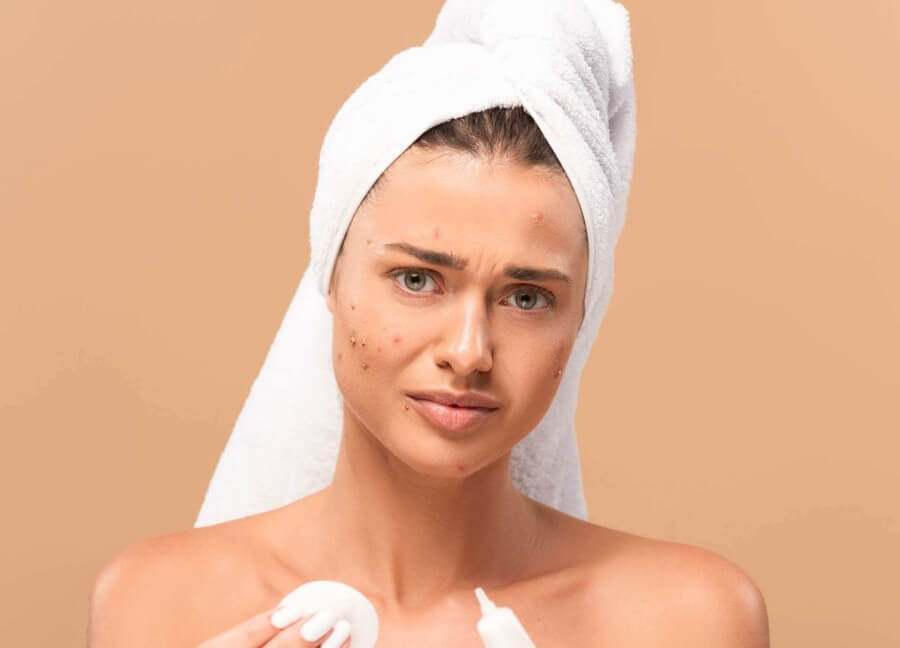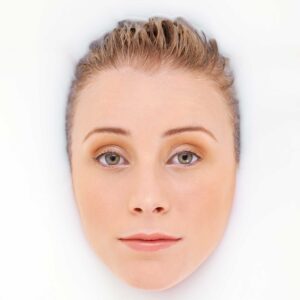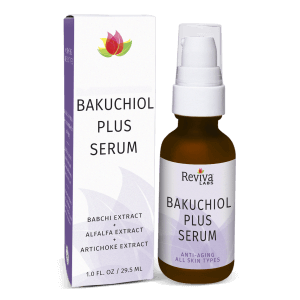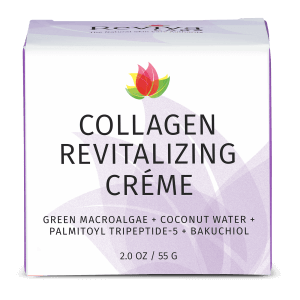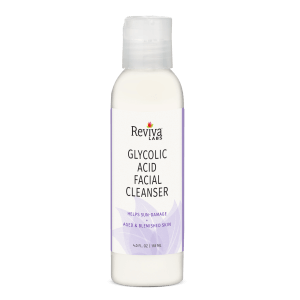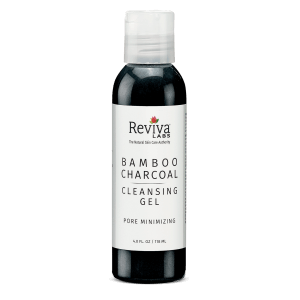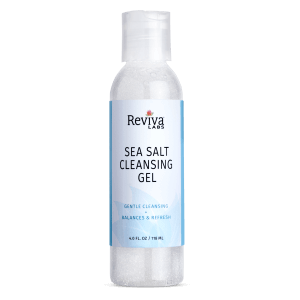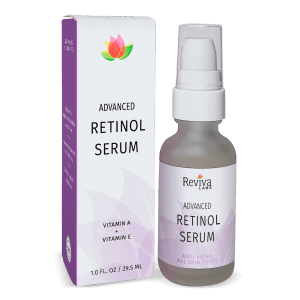Clean Beauty, Reviva Labs, Skin Care
What is Congested Skin?
Congested skin is a term used to describe skin that looks dull, feels rough and bumpy and that has visible white and blackheads on the cheeks, T-zone and forehead.
The cause of congested skin and “run of the mill” acne are very similar; pores become clogged with sebum and a build-up of dead skin cells, sweat, dirt or makeup. However, there is one difference. Full-blown acne usually clears up with time and attention but the whiteheads and blackheads of congested skin tend to linger and hang around longer. Without the presence of p-acnes, the bacteria that trigger a pimple, the body doesn’t work as hard or quickly to clear the pores. Consequently, pores can remain blocked for a while. So although congested skin is considered a precursor to acne, a pimple doesn’t always appear. Instead, the skin remains congested.
Symptoms of congested skin can vary by person and by skin type but common triggers include:
- Overactive sebaceous glands
- Hormonal fluctuations
- Poor or irregular skin care habits
- Using the incorrect skincare for the skin type
- An unhealthy diet
- Allergic reaction to makeup
Treating Congested Skin requires following some general guidelines:
1. Cleanse skin properly
One of the most important things you can do to combat congested skin is to cleanse the skin regularly. That said, it’s equally important to use the right cleanser for your skin type. Over cleansing the skin or using cleansers that are too harsh can strip the essential oils from the skin. This can stimulate oil production and set up a vicious cycle of being too oily followed by being too dry. Conversely, being haphazard about cleansing or by not thoroughly cleansing the skin of makeup, sweat and oil can also lead to clogged pores and dull skin. Be sure to wash your skin twice a day with warm water and a cleanser that is gentle and pH balanced. Your skin should feel soft and supple after cleansing, not tight and shiny.
Reviva Labs Recommends:
2. Exfoliate Regularly
Exfoliation is key to keeping skin smooth and free of bumps. Luckily, there are many ways to exfoliate. Physical exfoliators use small particles to sweep debris out of pores and stimulate cell renewal. They can be used two or three times a week. Chemical exfoliators use either alpha hydroxy acids (AHA) like glycolic and lactic acid or beta hydroxy acids (BHA) like salicylic acid, to gently slough off old skin cells and encourage new skin cells to take their place. Fruit enzymes also work to clear out pores. They tend to be less aggressive making them perfect for sensitive skins. They work by breaking down the “glue” or protein found in dead cells that allows them to be removed easily.
Reviva Labs Recommends:
3. Hydrate with Care
To keep skin balanced and calm, it’s important to find a moisturizer that provides the right amount of hydration while reducing congestion. Look for a serum or moisturizer formulated with retinol. Retinol can increase cell turnover to help prevent congestion as it helps reduce oil production. If you want similar results but have sensitive skin, look for products formulated with bakuchiol. Used in Ayurvedic practices for centuries, bakuchiol is a vegan alternative to retinol. It does everything retinol does without the irritation. Niacinamide is another ingredient to look for in hydrating products. A form of vitamin B3, niacinamide helps regulate oil production, reduce inflammation and helps skin retain moisture.
Reviva Labs Recommends:
- Advanced Retinol Serum
- Bakuchiol Plus Serum
- Multi-Factor Brightening Creme
- Skin Smoothing Antioxidant Day Crème
4. Dietary Changes
To keep skin clear and looking healthy, you may need to make adjustments in the way you eat. Studies suggest that certain foods can raise the levels of hormones that may increase the production of sebum and worsen symptoms of acne. The American Academy of Dermatology suggests avoiding processed foods, carbohydrates and sugar. While more research is needed, evidence suggests that a diet rich in omega-3 fatty acids like fish, beans and nuts as well as foods loaded with antioxidants like fruit and vegetables as well as dietary fiber may help reduce inflammation and fight acne.
Related Reading



